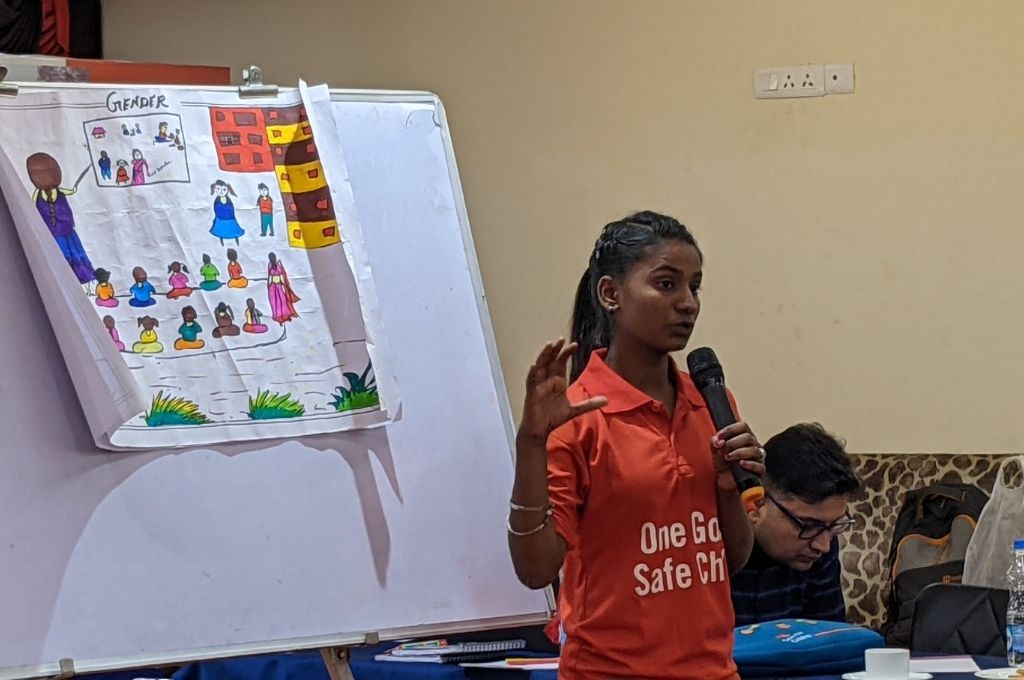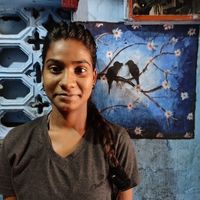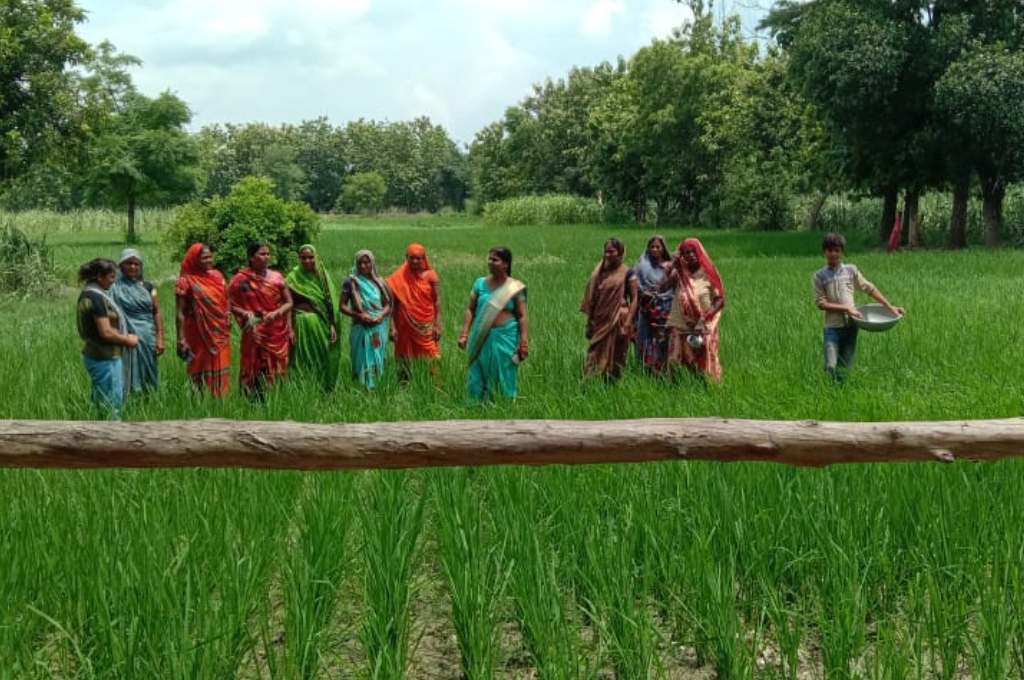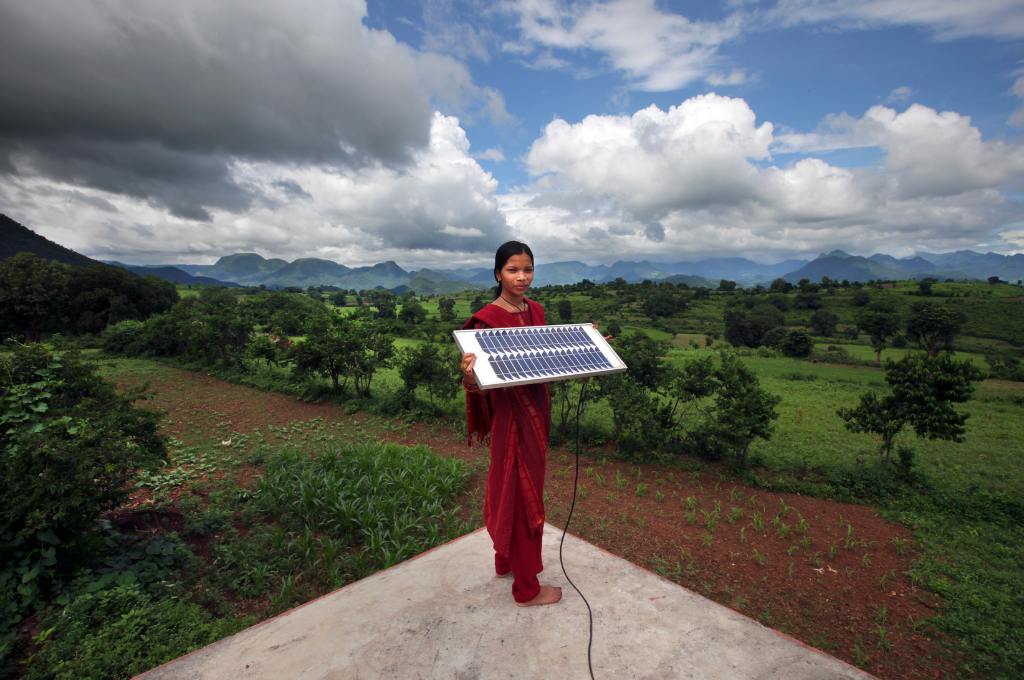I am 17. I live with my parents and five siblings in Kolkata. Papa works as a carpenter and Mummy does the household work. My eldest sister is now married, the one after her is in class 12 studying science, and I am in class 11 and I study commerce. Then there’s my younger sister who is in ninth, our brother is in seventh, and our youngest sister is in class five.
Our house is near a railway station, which made it easier for me when I would go to school in Sealdah. I would catch a train and reach the school in five minutes. But COVID-19 has changed my routine. Now I use a smartphone to study.
I love playing cricket. I have been playing in the locality since I was a child, but I never thought I would represent India at the national level. This happened in 2019 when I played in the Street Child Cricket World Cup held in London. I was part of a team made up of four boys and four girls, who were selected from across the country by Save the Children India. I still play with the team, and I am now the vice-captain.
5.00 AM: Even though schools aren’t physically open yet, I continue to wake up early. This way I can help Mummy with household chores before the online classes start.
But online classes are not easy. Most people in our colony do not have Android phones. In my house, too, there is only one phone. When it is available, I attend the classes. It was particularly difficult during the lockdown. Papa was not getting much work, and there were times when we could not recharge the phone.
7.00 AM: I finally tally a balance sheet that I’ve been working on for a few days. I enjoy accounting. Till a few years ago, history was my favourite subject. It was so easy to score in it! Even if you wrote two pages for a five-mark question, you would get four or five marks. But then I would watch my eldest sister, who had opted for commerce, make these big-big lines with a pencil and scale and work on a laptop. I liked it and decided in class eight itself that I would take commerce if I get to class 11.
Online lessons are difficult to follow and don’t happen regularly. When there are no classes, or as soon as they are over, I run to the nearby ground to play cricket with my friends. I have been playing with the bhaiyas (elder boys from the locality) here since I was a child. Initially, they only let me do fielding. Later, I started batting and bowling too. I love batting, but now I am an all-rounder.
12.00 PM: I come back home around this time. It is an old habit. When school was open, I would take the train back and be home by noon. My siblings and I help Mummy with some more housework and then we all eat lunch together.
After that I step out to work on my Dream Accelerator microproject, which is part of a national initiative to secure child rights. The project was started in 2020 and got this name as it focused on each child’s dream and how to take it forward. I decided that I wanted to talk to people about gender-related issues—how boys and girls are treated differently. Along with Madhabendra Singha Roy from Save the Children, we visited different houses in the locality to talk to parents about gender discrimination, and ask them to send their children to our meetings. Many parents did not listen to us initially. They would say we are kids and brush us aside. Others would listen to us and agree that gender discrimination happens but they would also say that they don’t do it, so there’s no need for them to send their children to the meetings.

However, things have changed for the better, as parents started seeing that we don’t mean harm. Many of them do come to our meetings now. Today’s meeting with the parents is satisfying. Many of them nod in agreement when I say that both boys and girls have a right to education. This is a big victory.
A lot of girls in my locality were not allowed to pursue an education till very recently. They would stay at home, while their brothers would be roaming around outside—playing or going to school or to work.
The problem is that the government school for girls is only till eighth standard. Since education is free till class eight, parents would let them study. But after ninth standard, since they would have to pay, they wouldn’t let their girls go to school any more. Our conversations with parents have helped. Now, at least some attitudes are changing. One or two children who had dropped out were even readmitted to the school by us.
2.00 PM: Today I happen to have a meeting with a group of children too. Quite early on we decided to keep the meetings with children separate from those with their parents. We realised that children say whatever they see. Older people are not as open, either due to shame or because they don’t want to disclose what’s happening in their homes. When spoken with separately, children would tell us that they have faced and seen these gender problems.
In these meetings, we discuss gender-based discrimination and how we should stop it when we see it happening around us, even if it is in our own homes. So, if you are a boy and your parents are treating your sister badly, you should ask them to see you as equals as both of you have the same rights. We explain that discrimination is not all right. One day is not usually enough for them to understand what we are saying, so we keep at it for many days. In some ways, discrimination has reduced in our area.
When we started, a lot of children had not heard about gender and the differential treatment that happens based on it. So, we prepared a list that covered what gender is, why it is what it is, and where gender issues are taking place. We created a survey form with 20 questions explaining gender, how discrimination between girls and boys plays out, and why we don’t agree with it. We identified 20 children and trained them on these issues. After this, each of them identified 10 children in their localities and spoke to them and their families about gender-based discrimination. In this way our message reached 200 households.
4.00 PM: I go out to play again. This is the best part of my day. Today an uncle from the neighbourhood remarks that girls should not be playing with boys. But it doesn’t bother me when people make these comments.
When I was growing up, I often wished I was a boy. But eventually I understood that I can do all the things that boys can. People were apprehensive when I got selected for the World Cup in London. They told my parents that under the garb of cricket training, the nonprofit will take me away and I will never be able to come back. But Mummy and Papa were supportive. They were scared as well, and so was I, but I wanted to prove people wrong. I thought if I give into my fear, I will never know what could be, and they will keep saying what they are saying.
I spoke about the street children of my locality who don’t have identity cards and hence can’t go to school.
I worked hard for the selection. I had only seen London on TV. I never thought I would be able to go there. But I did. And I also got to speak at the House of Commons in front of all the ministers. It was a huge opportunity! I spoke about the street children of my locality who don’t have identity cards and hence can’t go to school. And how a lot of children don’t have an identity because they don’t have Aadhaar cards. They don’t get opportunities and cannot go out anywhere. I really enjoyed this experience.
6.00 PM: It’s time to head home. Though I didn’t score many runs today, our team won by 30 runs. It is dark already. A few years back, no one could have thought that girls would be allowed to play till this late. Parents would object saying it is unsafe for us to be out when it is dark. We convinced them by telling them that now there’s electricity, there’s light. And so now you’ll find that girls from the locality are also stepping out later in the day to play.
People’s perceptions have also changed since my visit to London. Everyone in the locality is proud of us. Now they believe that girls can also do something. To be taken seriously, we had to take cricket seriously. The game has taught me a lot. Most importantly, it has taught me that nothing can be done alone. You see the results only when you work as a team.
I have also learnt a lot from working on my Dream Accelerator microproject, and I want to keep working on changing people’s perceptions. I want people to understand that girls are not less than anyone. But it can’t stop here. There’s a lot more work to be done. For example, people from the third gender who live nearby are not accepted in our colony. This is an old practice in our society—girls and boys are included but the third gender is not. The society we have created discriminates against them and thinks of them as different from us.
So I will continue with this work. And I will continue to play cricket too. What will I be when I grow up? Earlier I wanted to be a teacher—a kind one. But now that I am studying commerce, I think I will do something related to that, such as banking.
As told to IDR.
—
Know more
- Watch a young community mobiliser speak about her relief work during COVID-19.
- Read why policies and programmes must rethink gender norms.





